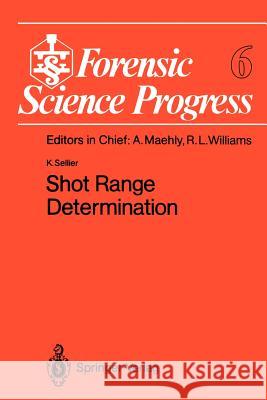Shot Range Determination » książka
Shot Range Determination
ISBN-13: 9783642767234 / Angielski / Miękka / 2011 / 105 str.
The range at which a weapon has been fired is an important measurement for the reconstruction of firearms offenses (murder, suicide, accident). All changes caused by a shot and which vary according to the distance from the weapon are suitable in principle for determining this distance. However, some procedures are very elegant in theory but hardly applicable in practice. The constructions of ammunition and the sequence of events during a shot are dealt with first as this knowledge forms a basis for understanding the various methods. The individual zones (classes) of firing distances (contact shot, intermediate shot, distance shot) are described. In this connection, the morphological methods for determining the firing distance are discussed. From the shape and size of the powder residue distribution (soot stains, powder tattooing) and with the knowledge of the weapon and ammunition, the distance from the target can be elucidated. In this chapter, the methods of making an invisible distribution visible are also dealt with. In order to determine the range of the shot from the appearance of the wound no complicated apparatus is necessary. One can judge with the naked eye. These procedures have a great advantage over the methods discussed in the following chapter in that they give stronger proof. They are more vivid and convincing for the uninitiated (judge or jury) than abstract measurements obtained by scientific devices.











